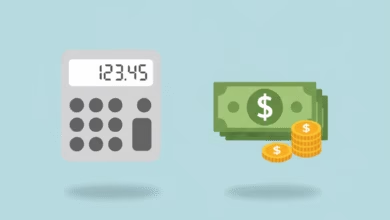How Childhood Beliefs Shape Your Financial Future
Understand how your childhood can determine the future of your wallet

Were you watching your parents huddle at the kitchen table, whispering anxiously over a pile of bills? Were you given a crisp dollar for every “A” on your report card? Did you hear the phrase, “Money doesn’t grow on trees,” every time you asked for something? Or did you grow up in a house where money was never discussed at all—as if it were a taboo, secret, or dirty subject?
Whatever your experience, that was your first financial lesson.
Long before you opened your first checking account, applied for a credit card, or even earned your first dollar, you were creating a complex, unconscious rulebook about what money is, what it’s for, and what it says about you.
This “rulebook” is your money script.
Most of us go through our entire adult lives making major financial decisions—about debt, investments, our careers, and our savings—without ever realizing that we’re being controlled by a set of beliefs we formed when we were seven years old.
These scripts are the invisible force behind every impulse purchase, every moment of financial anxiety, and every time you’ve ever said, “I’m just not good with money.” The truth is, your financial future isn’t just determined by your salary. It’s determined by your psychology.
This article is a deep dive into that financial blueprint. We’ll explore how these beliefs are formed, how to identify the ones that are sabotaging you, and how you can finally rewrite your story to build a future of security and freedom.
What Are ‘Money Scripts’ and Where Do They Come From?

The term “money scripts” was popularized by psychologists Dr. Brad Klontz and Dr. Ted Klontz. They are the unconscious, trans-generational beliefs about money that we develop, which, in turn, drive our financial behaviors.
They are the “software” running in the background of your mind, filtering all your financial data and outputting an emotional response and a behavioral command.
This software wasn’t installed by you. It was written by your childhood.
How Your Financial “Software” Gets Written
These powerful beliefs are almost never taught explicitly. They are absorbed through a process of emotional osmosis.
- Direct Observation (What You Saw): This is the most powerful teacher. Did you see your parents spend impulsively when they were happy and then fight when the credit card bill came? You may have learned that money is a source of temporary pleasure followed by conflict and shame. Did you see a parent lose a job, leading to a period of intense, visible scarcity? You may have learned that the financial world is unstable and that any security you have can vanish overnight.
- Verbal Messages (What You Heard): These are the phrases that get stuck in our heads. They become our unconscious truths.
- “Money is the root of all evil.”
- “Rich people are greedy/unethical/shallow.”
- “We can’t afford that.” (Often said without any further explanation).
- “You have to work your fingers to the bone for every penny.”
- “That’s ‘their’ kind of money, not ‘ours.'”
- “Money is meant to be enjoyed. You can’t take it with you!”
- Specific Emotional Events (What You Felt): Sometimes, a single, powerful event can forge a lifelong money script. This could be a family bankruptcy, a sudden inheritance, being excluded or shamed for not having the “right” clothes, or even receiving a large, unexpected gift. These events link money to intense emotions like fear, shame, joy, or guilt.
The 4 Most Common (and Destructive) Money Scripts
While our stories are all unique, they tend to cluster around a few central themes. Dr. Klontz’s research identified four primary money scripts that can be incredibly destructive. See if you recognize yourself in any of these.
1. Money Avoidance (“Money is Bad”)
- The Belief: Money is a dirty, negative, or corrupting force. People who have a lot of money are inherently greedy or bad. The pursuit of money is shallow, and there is virtue in having less.
- Childhood Origin: Often comes from hearing messages like “money is the root of all evil” or seeing wealthy people portrayed as villains. It can also be a coping mechanism for growing up with less—a way to feel morally superior.
- The Adult Behavior: This is the ultimate self-sabotage script.
- Financial Denial: You are the “financial ostrich.” You avoid opening bills, checking your bank account, or looking at your 401(k). The anxiety is too high.
- Under-Earning: You actively avoid opportunities for more wealth. You won’t ask for a raise, you under-price your services in business, and you feel intense guilt when you have a financial windfall.
- Financial “Anorexia”: You get rid of money as fast as it comes in, “loaning” it to friends you know will never pay you back or donating it to the point of your own financial detriment.
2. Money Worship (“Money Will Save Me”)
- The Belief: More money is the solution to all of life’s problems. If you just had “enough” money, you would be happy, confident, and all your worries would disappear. Money is the path to true happiness.
- Childhood Origin: This often comes from growing up in a low-income environment where money was the clear and present source of all the family’s stress. The child learns to believe that the absence of money is the root of all pain, so the presence of it must be the root of all joy.
- The Adult Behavior: This leads to a life on a financial hamster wheel.
- Workaholism: You are willing to sacrifice your health, your relationships, and your free time in the endless pursuit of “more.”
- Gambling & Risk-Taking: You’re susceptible to “get rich quick” schemes and may take wildly inappropriate risks in your investment portfolio, hoping for that one big score.
- Chronic Dissatisfaction: You’re never “rich enough.” You reach a financial goal, get a brief high, and then immediately fixate on the next, bigger number, unable to ever feel secure or content.
3. Money Status (“Money is My Worth”)
- The Belief: Your self-worth is directly tied to your net worth. The only reason to have money is to display it, proving to the world (and yourself) that you are successful, smart, and valuable.
- Childhood Origin: Often comes from a background of feeling “less than” or invisible. The child learns that possessions and visible wealth (the right brand of clothes, the nice car) get them positive attention and social approval.
- The Adult Behavior: This is the script that powers the “Keeping Up with the Joneses” economy.
- Chronic Overspending: You live paycheck-to-paycheck, or worse, deep in debt, to maintain a lifestyle that looks impressive.
- Credit Card Debt: You are a high-end credit card’s dream customer. You see your credit limit as an extension of your income and use it to fund a life you can’t actually afford.
- Secrecy and Shame: You live in terror of being “found out.” You’re financially fragile, but all your energy goes into projecting an image of success. You’d rather go bankrupt than admit to a friend you can’t afford that expensive dinner.
4. Money Vigilance (“Money is a Source of Fear”)
- The Belief: You must be constantly, anxiously aware of your money. You must save, save, save, because a financial catastrophe is always just around the corner. Money is for security, never for pleasure.
- Childhood Origin: This is common in children of the Great Depression or those who saw a parent go through a sudden, traumatic financial event like a job loss, foreclosure, or bankruptcy. They learned that the floor can fall out from under you at any second.
- The Adult Behavior: On the surface, this can look like a “good” script. These people are often great savers. But it’s driven by deep anxiety.
- Financial Hoarding: You have a hard time spending money on anything, even necessities or things that would bring you genuine joy.
- Extreme Risk-Aversion: You’re terrified of investing. You keep all your money in a low-interest savings account or “under the mattress” (figuratively or literally), where it’s being eaten alive by inflation. You miss out on decades of compound growth.
- Anxious Stewardship: You can’t enjoy your money. Even if you’re a multi-millionaire, you still feel poor, obsessively checking your accounts and stressing over small expenses.
How Your Money Blueprint Impacts Every Part of Your Life

These scripts don’t just live in your head. They dictate real-world outcomes.
Your Relationship with Debt (Loans & Credit Cards)
A “Money Status” script will tell you that the $10,000 credit card limit is there to be used for a luxury vacation. A “Money Avoidance” script will have you missing payments because you’re too afraid to open the statements, destroying your credit score. A “Money Worship” script might lead you to take out a massive business loan, convinced this one venture will solve everything, while a “Money Vigilance” script makes you terrified of using debt for anything, even a mortgage for a house.
Your Relationship with Investing
Your investment strategy is a perfect mirror of your money script.
- Avoidance: “Investing is too complicated/risky. It’s just for rich people.” You never start, missing out on the #1 tool for building wealth: compound growth.
- Worship: “This crypto/meme stock is going to the moon! I’m all in!” You treat investing like a casino, taking on catastrophic levels of risk.
- Status: “I only invest in things I can talk about at parties.” You might buy into a flashy, high-fee “exclusive” fund pitched by a smooth-talking broker.
- Vigilance: “The market is going to crash.” You sell at the first sign of a dip (selling low) and keep all your money in cash, losing to inflation.
Your Relationship with Your Career (Business & Income)
A “Money Avoidance” script is the #1 reason why talented people are underpaid. You’re a freelancer who never raises your rates. You’re an employee who knows you’re underpaid but is too afraid to ask for a raise because it feels “greedy” or “confrontational.” A “Money Status” script might chain you to a high-paying job you absolutely hate, all for the sake of the title and the paycheck.
How to Identify and Rewrite Your Financial Blueprint

This is the most important part. You are not doomed to repeat these patterns. Your childhood beliefs are just that: beliefs. They are not facts. You are an adult now, and you have the power to write a new, healthier financial story.
Step 1: Identify Your Primary Script (The Financial Audit)
You can’t fix a problem you can’t see. Get a piece of paper and be radically honest.
- Answer the Questions: Go back to the questions from the intro. What’s your first money memory? What did your parents say? What emotions do you feel when you open your bank account?
- Look for Patterns: Look at your bank and credit card statements. Where does your money actually go? Does it align with a pattern of avoidance (tons of late fees?), status (all designer brands and expensive restaurants?), or vigilance (90% of your income goes to savings, and you live on rice and beans?).
- Name It: Give your script a name. “The Avoider,” “The Scarcity Mindset,” “The Status Seeker.” Giving it a label separates it from you. It’s not you, it’s a script you’re running.
Step 2: Challenge and Deconstruct the Belief
This is where you become a detective. Take your primary belief and put it on trial.
- The Belief: “Rich people are greedy.”
- The Challenge: Is that 100% true? Do I know any wealthy people who are generous? (Think of philanthropists like Bill Gates or a local business owner who donates to charity). Is it possible that money just amplifies who a person already is?
- The Origin: Why did I learn this? Ah, my parents said this, maybe because it made them feel better about not having much. It was a shield to protect their own self-worth.
Step 3: Reframe and Create New Mantras
You need to consciously replace the old, harmful script with a new, healthy, and true one. Write it down. Put it on your computer monitor. Say it out loud.
- Old Script: “Money is the root of all evil.”
- New Script: “Money is a tool. It can be used for good or for bad. I will use it as a tool to build a secure life for my family and to be generous to others.”
- Old Script: “I’m just bad with money.”
- New Script: “I am learning to be a conscious and effective manager of my money.”
- Old Script: “I have to buy this to show I’m successful.”
- New Script: “My worth comes from my character, not my possessions. I am building real wealth, not just the appearance of it.”
Step 4: Change Your Behavior with “Pattern Interrupts”
Beliefs are just habits of thought. The best way to change them is to change the behaviors they cause.
- If you’re an Avoider: Create a “money date.” For 15 minutes, every Sunday morning, you will open your accounts. Make it pleasant. Get a cup of coffee. Put on music. The goal is just to look.
- If you’re a Status Spender: Institute a 24-hour rule. Before any non-essential purchase over $100, you must wait 24 hours. This breaks the emotional, impulsive high and lets your rational brain catch up.
- If you’re a Vigilant Saver: Schedule spending. Create a “Guilt-Free Spending” fund in your budget. This is money that you must spend on something you enjoy. It retrains your brain to accept that it’s safe to spend.
- For Everyone: Automate. This is the #1 tool for bypassing your broken money scripts. Set up automatic transfers to your savings and investment accounts for the day after you get paid. This “pays yourself first” and puts your financial future on autopilot, protecting it from your own emotional whims.
Your Past is Your Data, Not Your Destiny

Your relationship with money is one of the longest and most significant relationships of your life. For many of us, it’s a dysfunctional one, rooted in a past we didn’t choose and beliefs we didn’t know we had.
The good news is that you are not your past. You are not your parents’ financial anxieties.
By bringing these hidden scripts into the light, you can finally take away their power. You can stop being a passenger, driven by the unconscious whims of your childhood, and take the wheel. Your financial future isn’t written in stone. It’s a blueprint—and you have the power to draw up a new one, starting today.





